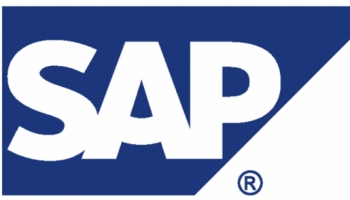

SAP is seeking to leverage its mobile assets as a way forward amidst strong competition from Oracle, Microsoft and other enterprise software competitors.
That was the news from the Sapphire Now conference in Orlando, Florida, this week. Amazon Web Services and SAP have partnered to deliver the latter’s enterprise solutions on demand via the cloud – including SAP Rapid Deployment Solutions and SAP BusinessObjects.
The hope is that customers will gravitate toward a pay-per-use model, especially if it allows them to scale up and down quickly according to particular business needs.
SAP is also building off its Sybase subsidiary with the release of Sybase Unwired Platform 2.0 and a new SDK (software development kit) for creating mobile business applications. In theory, that combination will allow a company to control every step of the mobile-app lifecycle, from building and deploying to updating and management. A Hybrid Web Container toolset will let developers build a native app without having to code for specific devices.
Sybase Unwired Platform 2.0 is available now, with the enhanced SDK set for rollout sometime in the next few months. With regard to application building, SAP currently supports Windows Mobile, Research In Motion’s BlackBerry 5 and 6, iOS 4.3, and, by the end of the second quarter, Google Android.
In addition, SAP is unveiling a collection of mobile apps, built on the Sybase Unwired Platform, for industries ranging from manufacturing and consumer products to utilities, tech, oil and gas, retail and health care.
“We are reaching an inflection point in the industry, where developing and deploying mobile apps tops the priority list this year for a majority of enterprises,” Stephen Drake, a programme vice president for research firm IDC, wrote in a May 17 statement circulated by SAP. “The influx of powerful smartphones, tablets and innovative applications is driving widespread consumption of mobile technology, making return on investment in mobile IT much more transparent for companies.”
SAP also needs to justify the $5.8 billion (£3.6bn) it paid for Sybase in 2010. At the time, the company promised that synergies between the two companies would result in quick and tangible benefits, not the least of them a mobile business applications platform capable of running on many different mobile device and operating systems. Before its acquisition, Sybase was primarily known as the 26-year-old producer of relational database software and mobile database management products.
Once SAP incorporated Sybase, it focused on joint product development in three areas: enterprise mobility, business analytics and enterprise information management. At an August 2010 event in Boston, SAP co-CEO Bill McDermott suggested to industry analysts and media that Sybase’s assets would help SAP become “the only company in the world to deliver the full suite of enterprise software and next-generation business intelligence on any device at any time.”
However, SAP also finds itself locked in brutal battle with some large and hungry competitors for a piece of the enterprise pie, a war made no easier by the company’s vicious lawsuit with archrival Oracle. Given the trend by businesses and consumers toward mobile solutions and the cloud, SAP’s aggressive plays in that area could help it maintain and grow its presence in that area – even as its competitors attempt to match or surpass its moves.
All Cybertrucks manufactured between November 2023 and February 2025 recalled over trim that can fall…
As Musk guts US federal agencies, SEC issues summons over Elon's failure to disclose ownership…
Moonshot project Taara spun out of Google, uses lasers and not satellites to provide internet…
Pebble creator launches two new PebbleOS-based smartwatches with 30-day battery life, e-ink screens after OS…
Amazon loses appeal in Luxembourg's administrative court over 746m euro GDPR fine related to use…
Nvidia, xAI to participate in project backed by BlackRock, Microsoft to invest $100bn in AI…